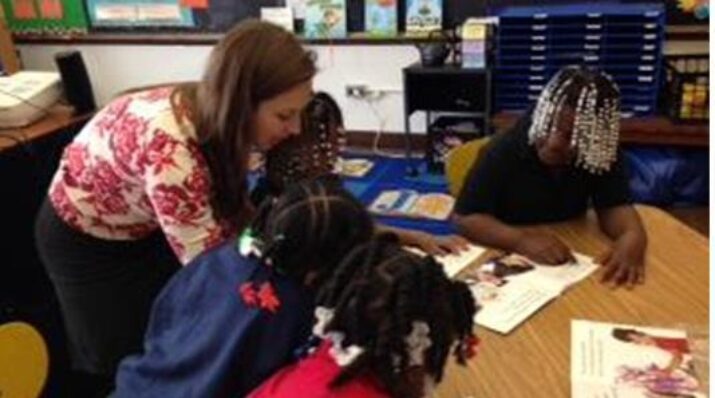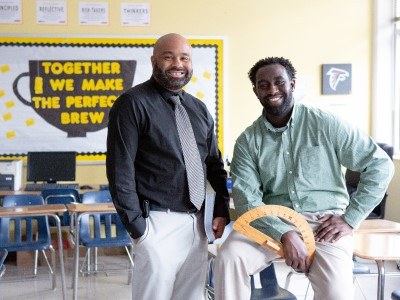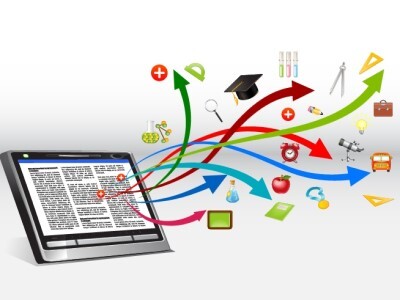How EAA’s Personalized Learning Platform Works
Topics

Educators increasingly rely on education technology tools as they shift instruction, redefine teacher roles, and design learning experiences that reflect how students actually learn. Technology should never lead the design of learning. But when used intentionally, it can personalize instruction, enrich learning environments, and help students master critical skills.
At the Education Achievement Authority of Michigan, an online platform is shifting the way student-centered classes are structured.
Across the nation, teachers have been preparing their classrooms for a new school year, paying attention to their lesson plans, the physical space, and the resources contained within the four walls that students will use throughout the year.
At the Education Achievement Authority of Michigan, an online platform that gives teachers access to curricular planning, resources, and analytics is shifting the way student-centered classes are structured.
Here’s how Kristie Ford, a science and social studies teacher, prepared her curriculum:
“I fully integrated the Buzz platform into my classroom curriculum design. I used the format that was provided in the Buzz courses as an outline to guide my progression and pace for the year. I then added or deleted content in order to fit the needs of my students. My students also had the choice of using outside resources to supplement their learning—textbooks, resource books, peer-to-peer discussion, and small group instruction that matched the content in Buzz.”
What is Buzz?
Buzz is an online platform for personalized learning in which students make progress through content and assessments aligned to the Common Core. The platform also provides teachers with data to inform their instruction, supporting the student-centered learning model of EAA schools.
You can learn more about how EAA developed Buzz in partnership with Agilix and School Improvement Network in a new brief Next Gen Tools: EAA’s “Buzz.” Author Jodi Lewis also describes the features of Buzz, the challenges associated with integrating the platform into teacher’s instruction, and what’s next for the tool.
Professional development for teachers—to help them meet the challenges Buzz presents so they can provide a rigorous, positive, and personalized learning experience for students—was featured on our blog last week (see A Personalized Learning Approach to Professional Development at Education Achievement Authority.)
This past spring, Agilix made Buzz commercially available.
Schools Developing EdTech: A Trend
Other NGLC Breakthrough Model grant recipients have been involved in platform development. It seems the edtech marketplace hasn’t fully caught up with the tech needs of these highly innovative, highly personalized schools and degree programs.
- With the Girard Education Foundation and Illuminate Education, Summit Public Schools created Activate Instruction, a curriculum platform integrated with assessments. They also built their own Personalized Learning Plan (PLP) dashboard to help students manage their learning; see Building an Aligned System of Digital Content, Individualized Student Playlists, and Deeper Learning Assessments and a recent EdSurge article, How Summit Makes Friends by Challenging the Traditional Edtech Marketplace.
- College for America developed the CLE, the CfA Learning Environment, [now called Motivis Learning] using the customer relations management tool, Salesforce.
- Touchstone Education constructed Scoreboard, which shows students’ daily schedules of online content and which skills they need to work on through playlists that include teacher-led instruction, self-paced interactive digital content, and assessments. (We hope to share more info about Scoreboard with you soon; in the meantime, you can read how it supports the school’s academic model in Merit Prep’s grantee profile.)
- As early leaders in the school-edtech development trend, Leadership Public Schools developed and spun-off ExitTicket. And Aspire Public Schools spearheaded Schoolzilla.
The ongoing Next Gen Tools series describes the innovations that breakthrough model developers—in K-12 and higher ed—need to create in order to make their completely redesigned academic and organizational models function effectively. View all published briefs in the series.




